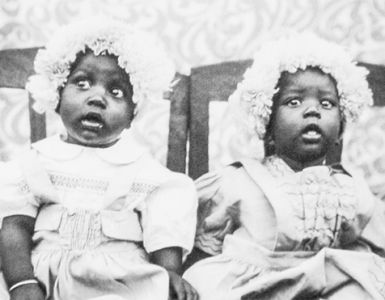LEGACY: Ngúgí wa Thiong’o’s decolonial writings are a brave and persistent attempt to recover African histories, voices, and futures
By Abdirashid Diriye Kalmoy
Ngũgĩ wa Thiong’o, one of the most prominent writers and philosophers in Africa and globally, passed away on 28 May 2025. Ngũgĩ’s literary works and political ideas have effectively questioned and critiqued the political and cultural effects and the legacies of colonialism in Africa.

His switch from writing in English to his native Gĩkũyũ represents a larger intellectual turn toward decolonial thought that Ngugi advocated for. Ngũgĩ has consistently explored colonial authority, postcolonial treachery, and the potential for cultural revitalisation through African languages and indigenous epistemologies in his plays, essays, and novels.
In addition to criticising the aftereffects of colonialism, his decolonial writings also offer ideas for real emancipation.
The emphasis on the importance of language is at the core of Ngũgĩ’s decolonial writing. He makes a compelling case for the connection between language and power in his landmark work Decolonizing the Mind (1986).
Ngũgĩ asserts that colonialism involved more than just gaining political power; it also involved conquering the colonised people’s minds and modes of thinking. In this way, language becomes a means of internalising colonial ideals.
According to Ngũgĩ, African children were estranged and alienated from their cultures, histories, and identities when European languages were forced into African classrooms. He established a profound break with the colonial legacy and adopted a decolonial praxis based on linguistic self-determination by choosing Gĩkũyũ over English as the medium for his creative work.
Ngũgĩ wrote early English-language novels that outline the historical intricacies of Kenya’s colonial and post-independence experience, including Weep Not, Child (1964), The River Between (1965), and A Grain of Wheat (1967).
These pieces examine the conflicts between tradition and modernity, the psychological effects of colonial aggression, and the ethical quandaries that those caught up in historical upheavals must confront.
Despite being strong criticisms of colonial rule, these novels are nonetheless written in the coloniser’s tongue – English. However, they lay the groundwork for concepts that Ngũgĩ would later expand upon in his more overtly decolonial writings.
Petals of Blood (1977), a critique of neocolonialism, corruption, and the betrayal of the ideals of independence, marked a sea change in Ngũgĩ’s literary and political trajectory. The book reveals how Kenya’s elites have colluded with the ongoing exploitation of the populace since gaining independence. Petals of Blood bridges the gap between Ngũgĩ’s later work in Gĩkũyũ and his English-language writing, signalling a change toward a more revolutionary tone.
Ngũgĩ returned to writing in Gĩkũyũ and addressing the problems of the working class and peasantry after being imprisoned without trial in 1977.
This change is chronicled in his 1981 jail memoir, Detained. Co-written with Ngũgĩ wa Mĩriĩ, the play Ngaahika Ndeenda (I Will Marry When I Want) was produced in Gĩkũyũ and performed in Limuru town, becoming a focal point for state persecution and demonstrating the radical potential of decolonial cultural expression. The play’s focus on labour, land, and exploitation struck a deep chord with the audience and showed how indigenous languages can express a liberating political ideology.
While incarcerated, Ngũgĩ wrote his first Gĩkũyũ-language book, Caitaani Mũtharaba-inĩ (Devil on the Cross, 1980), on toilet paper. The book is a daring attempt in both form and substance, criticising capitalist exploitation and the assimilation of colonial ideas by Kenya’s elites through the use of satire, allegory, and oral traditions.
Ngũgĩ challenges the elitism of colonial and neocolonial literature by elevating the voices and experiences of common people, especially women and labourers. Devil on the Cross is a visionary book that acknowledges the strength of indigenous wisdom and group resistance, and not just protest fiction.
Later works by Ngũgĩ, such as Matigari (1987) and Mũrogi wa Kagogo (2006), carry on this tradition of radical critique and creative reconstruction. After a protracted battle, a revolutionary hero returns to Kenya to find the same oppressive systems still in place, according to Matigari’s account.
The book explores themes of justice, honesty, and moral courage by fusing myth and reality. Perhaps Ngũgĩ’s greatest work is Mũrogi wa Kagogo, a comprehensive political satire tackling dictatorship, brutality, and global capitalism.
The English translation, Wizard of the Crow, preserves the depth of African oral traditions and idioms. It is the result of Ngũgĩ’s lifetime dedication to decolonial politics and indigenous aesthetics.
In addition to his formal choices and thematic emphasis on cultural liberation and anti-colonial resistance, Ngũgĩ’s writing is incredibly decolonial and empowering. He demonstrates a strong confidence in the democratisation of culture by his dedication to African languages, his use of oral storytelling techniques, and his involvement with popular forms like theatre and song. Ngũgĩ affirms the legitimacy and vitality of African worldviews while contesting the Eurocentric presumptions of literary modernism.
Ngũgĩ’s decolonial literature has inspired many writers in Latin America, the Caribbean, Africa, and beyond. His writings resonate with Aimé Césaire’s assertion of négritude and Frantz Fanon’s appeal for a new humanism, and they also touch on larger movements for cultural sovereignty and epistemic justice.
According to Ngũgĩ, decolonisation is a profound reorientation of consciousness based on language, memory, indigenous agency and struggle rather than merely a political process of independence and self-rule.
To sum up, Ngũgĩ wa Thiong’o’s decolonial writings are a brave and persistent attempt to recover African histories, voices, and futures. Ngũgĩ has made a name for himself in world literature by rejecting colonial languages, embracing indigenous storytelling traditions, and steadfastly criticising neocolonialism.
Many argued that, for this, he deserved the Nobel prize, which he never received. Ngũgĩ’s writings serve as a reminder that decolonisation is a continuous process that necessitates ingenuity, defiance, and a strong commitment to the people while not neglecting the intricacies of all humanity.
In my high school years at Nakuru High school and Mandera High school, we devoured Ngugi’s novels with friends and teachers; his novels were mandatory in Kenya’s education curriculum. One cannot forget the beautifully woven stories he offered to the world.
Asante Ngugi wa Thiong’o. Lala salama Mzee.
* Abdirashid Diriye Kalmoy is a PhD candidate in Sociology at Ibn Haldun University, Istanbul. His work has been featured in Daily Sabah, The Elephant, Africa Is a Country, and Modern Diplomacy. He is the author of the forthcoming book Hopes in Transition: An Ethnography of African Migrants in Istanbul (Ibn Haldun University Press)






























